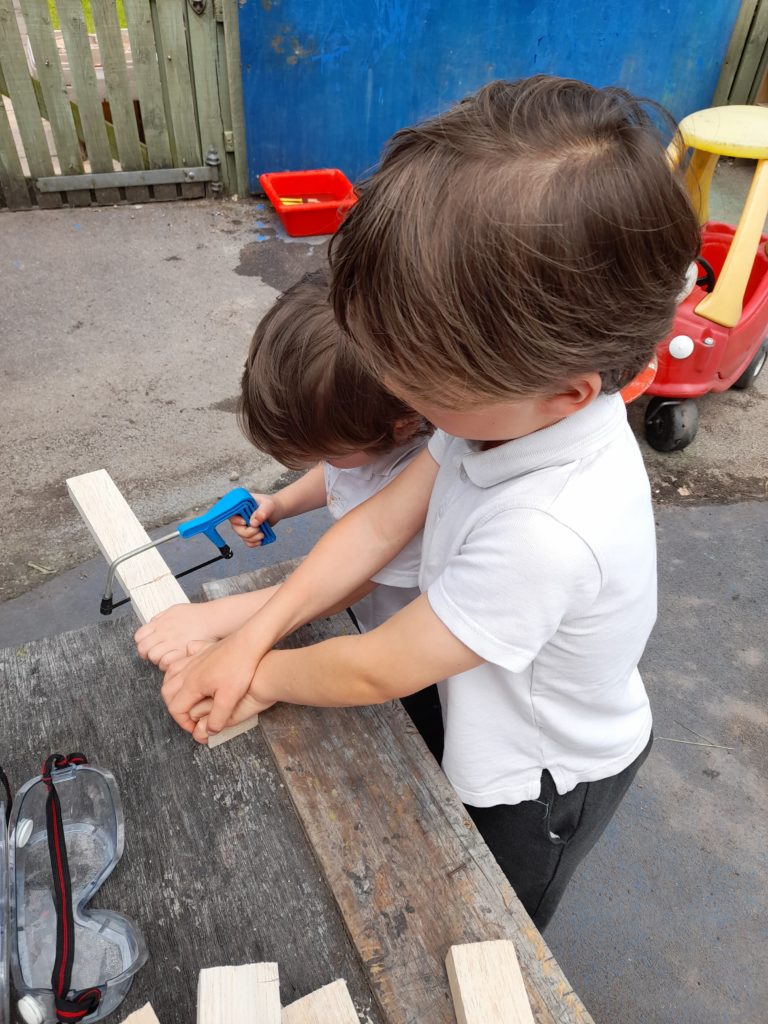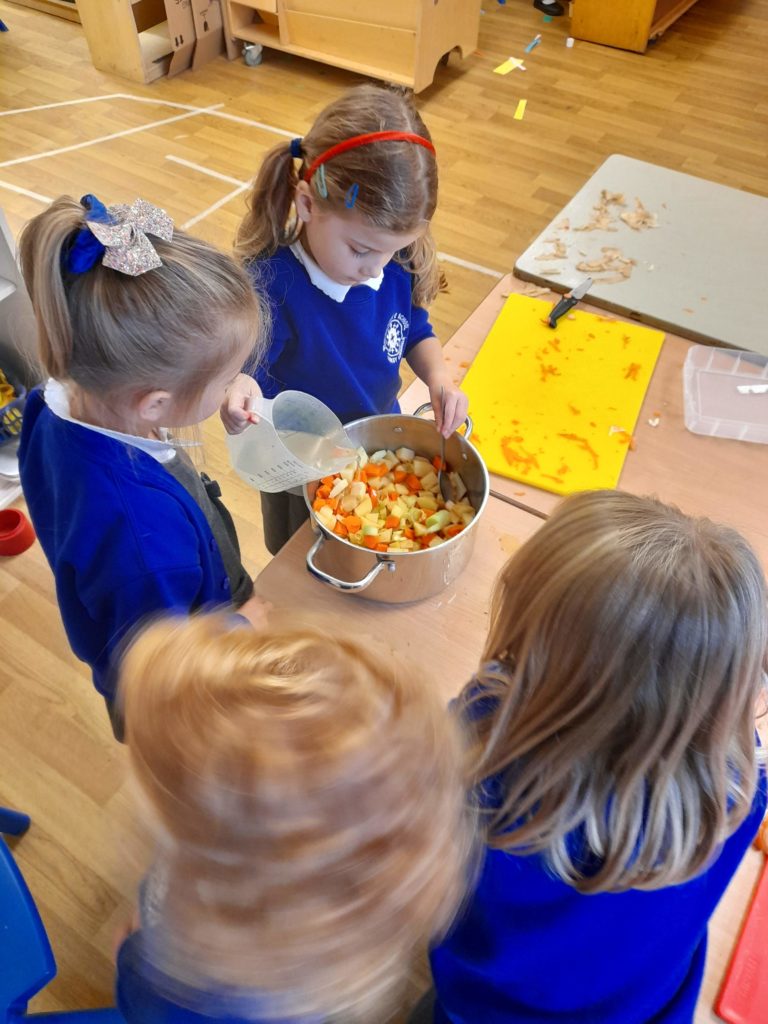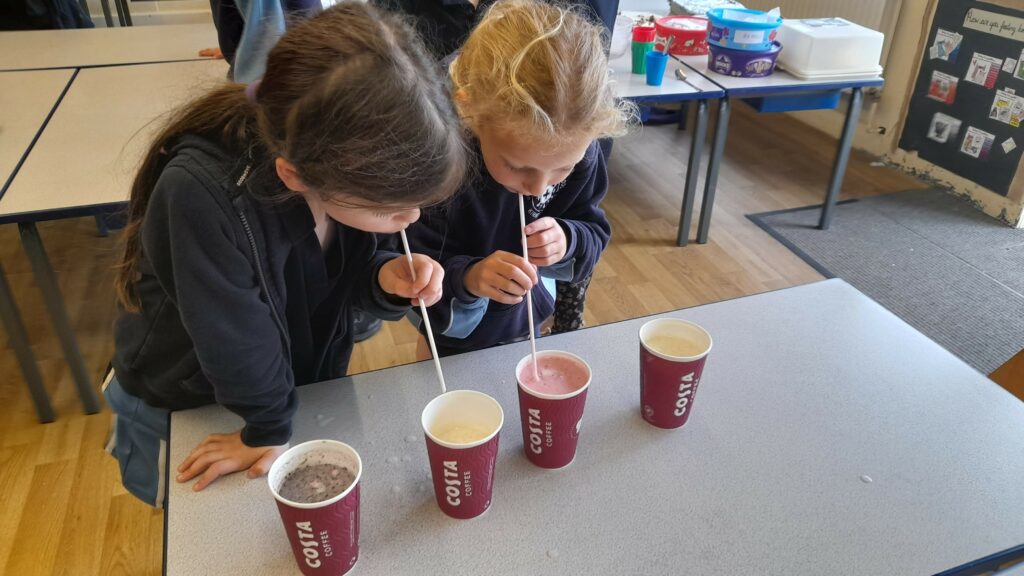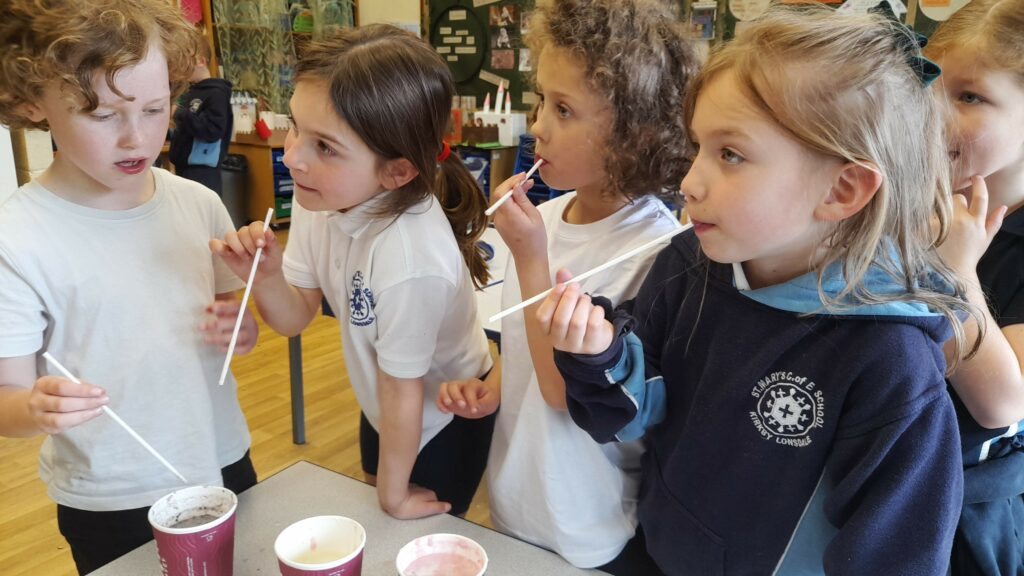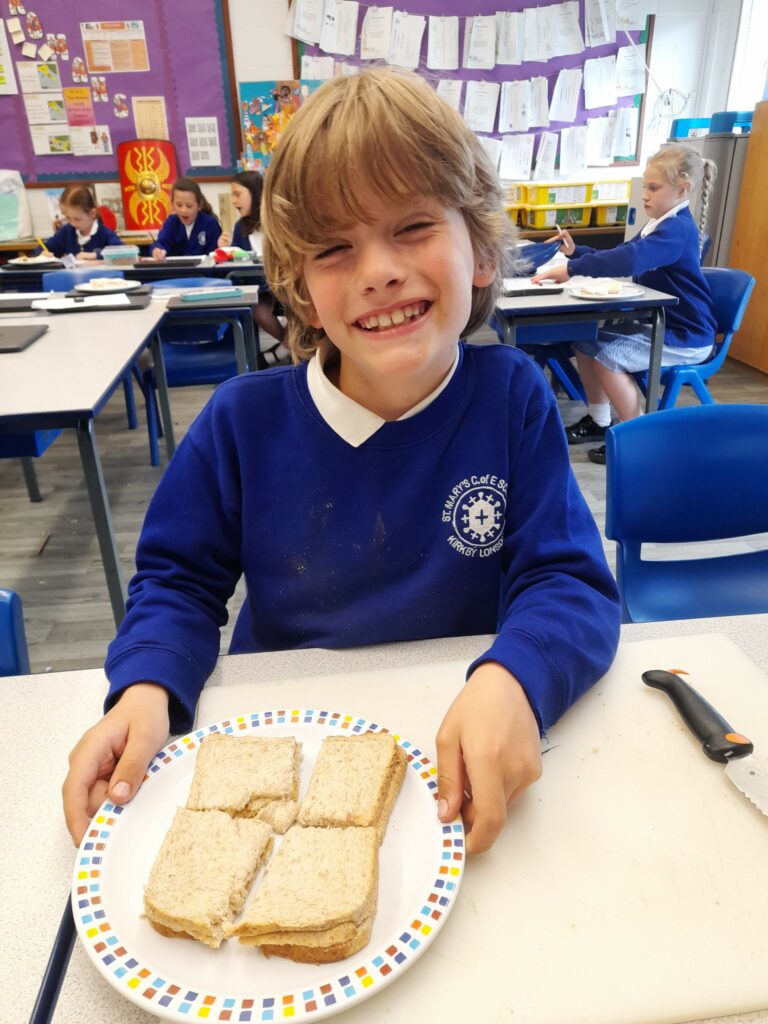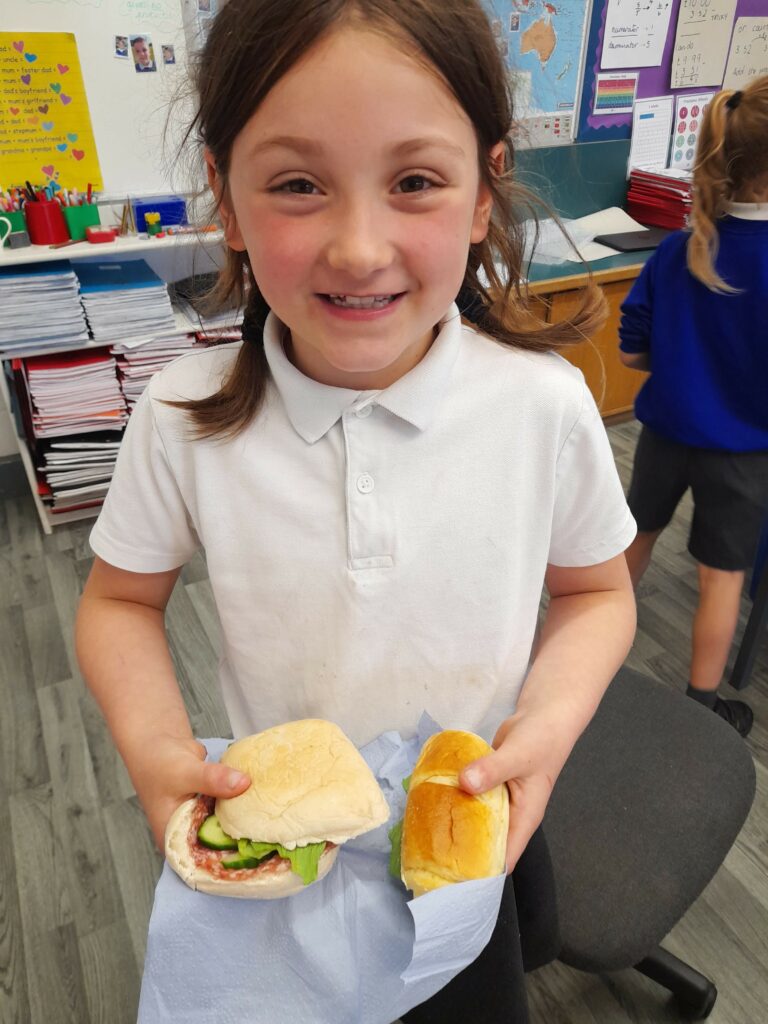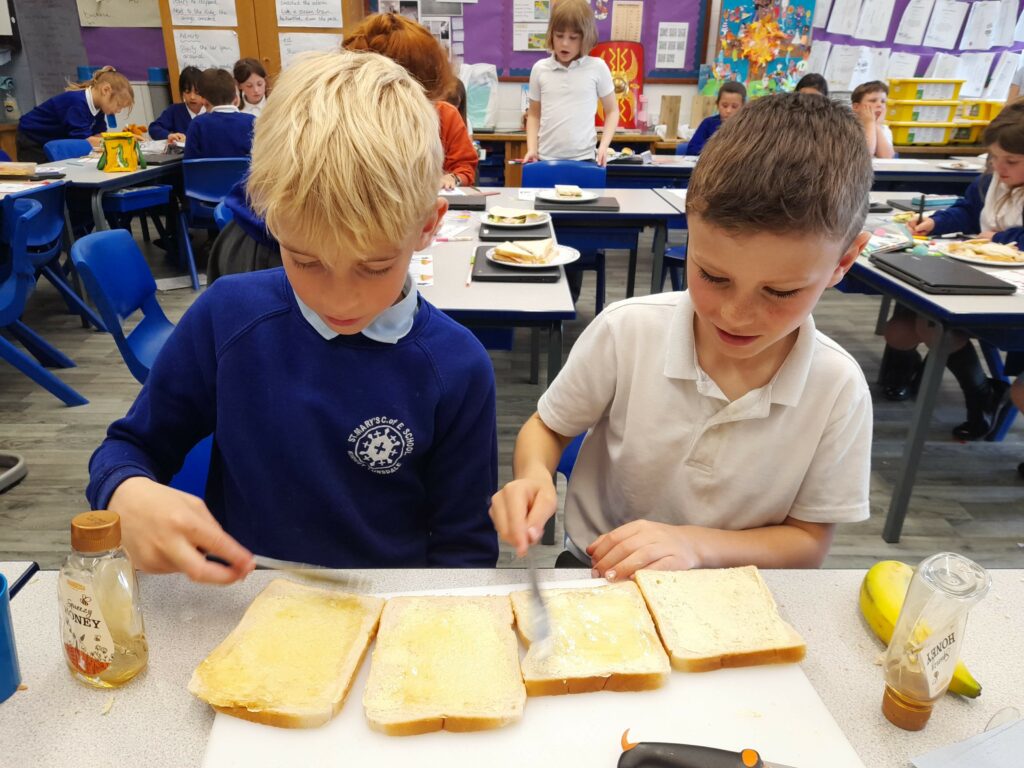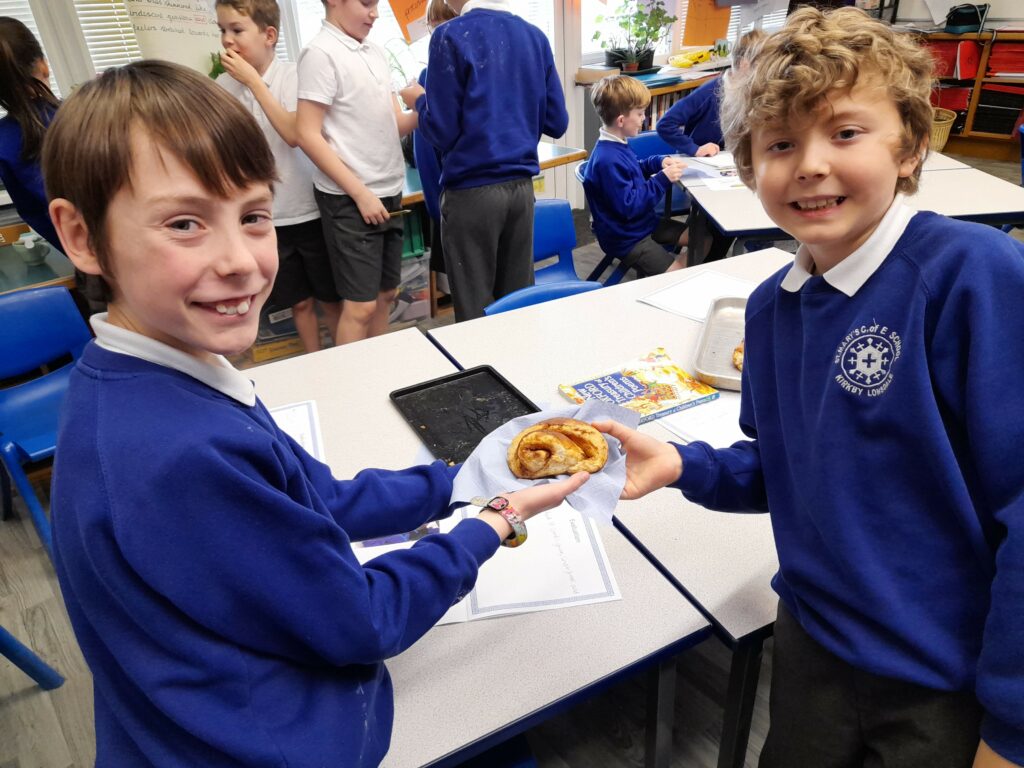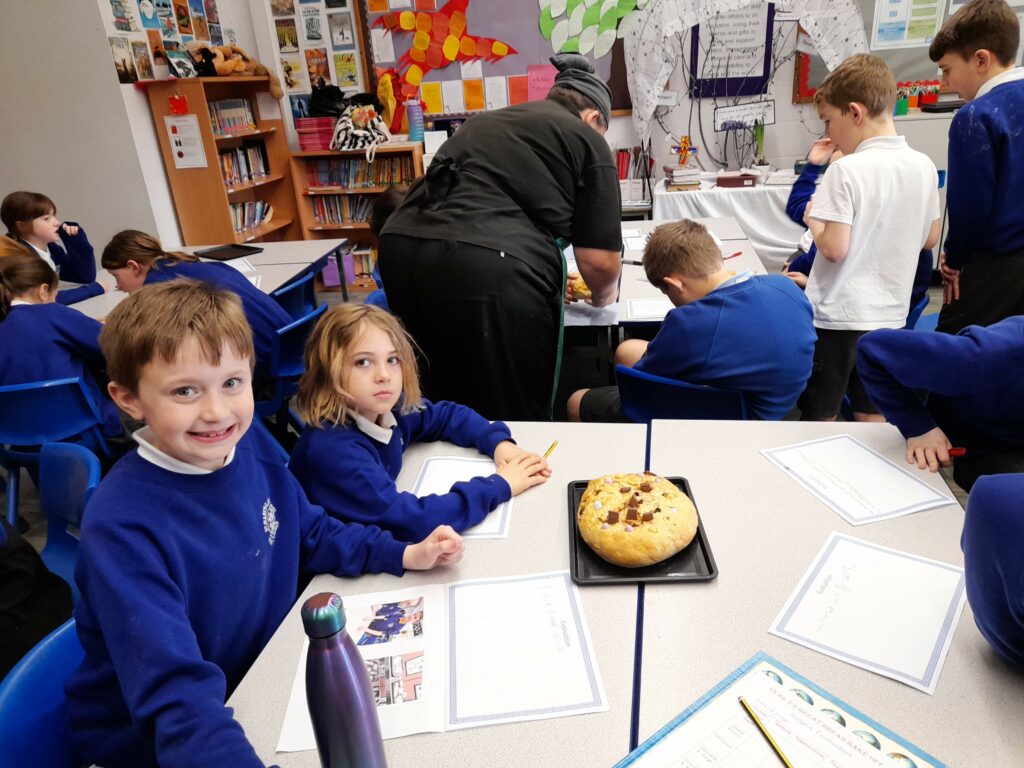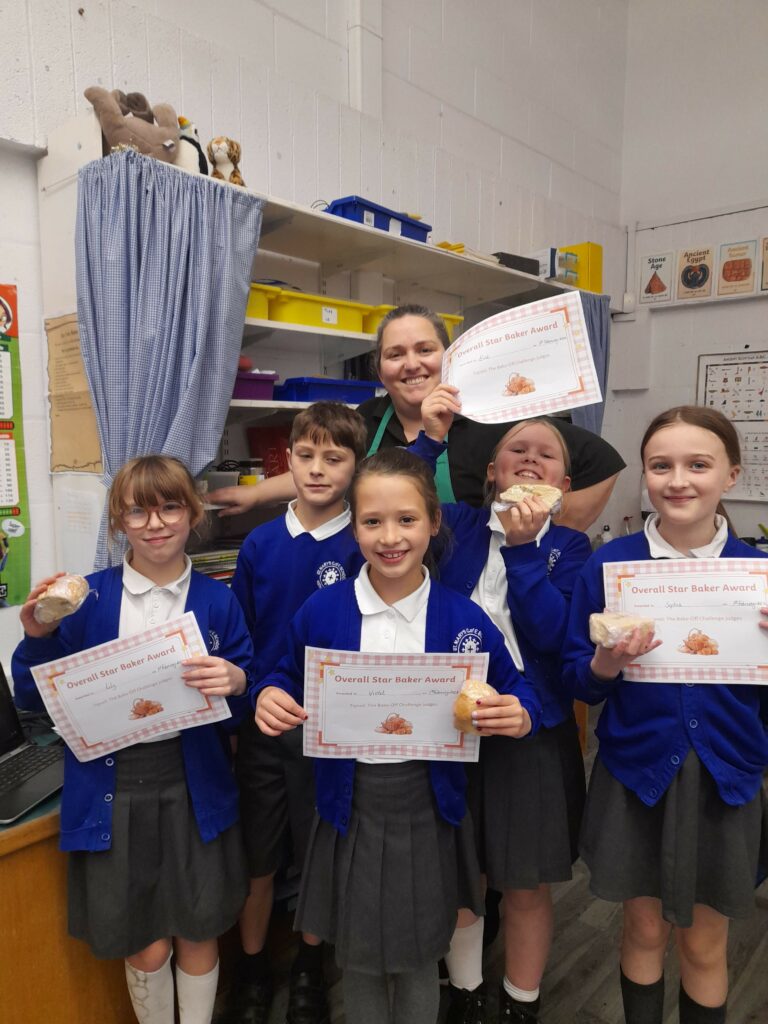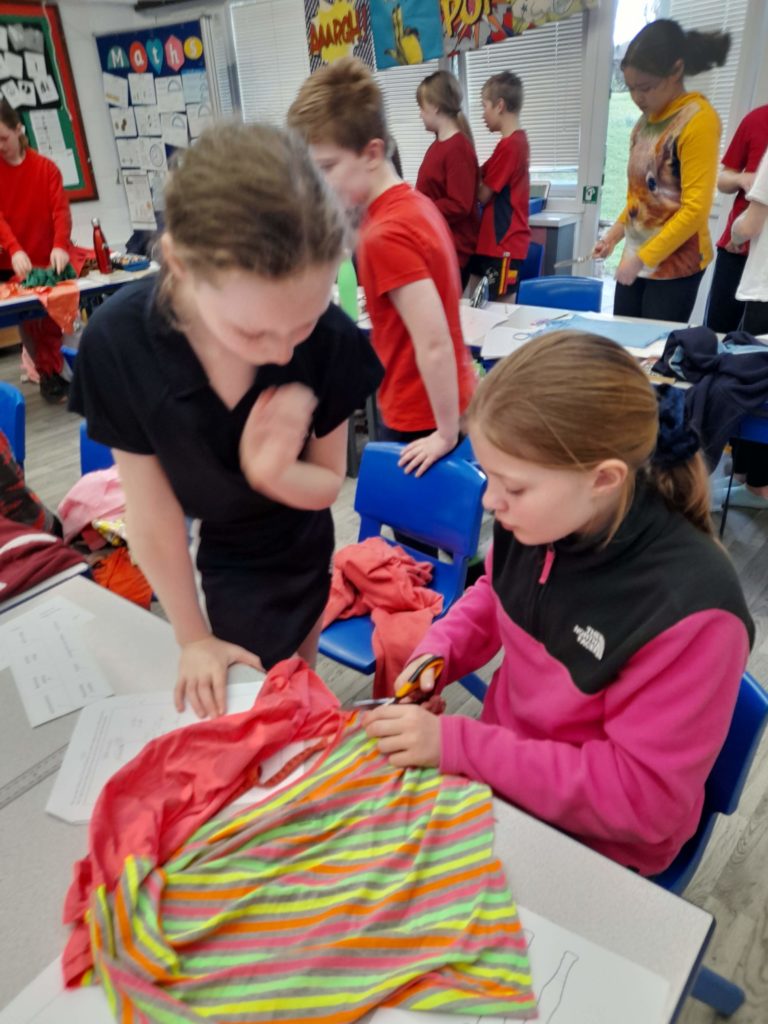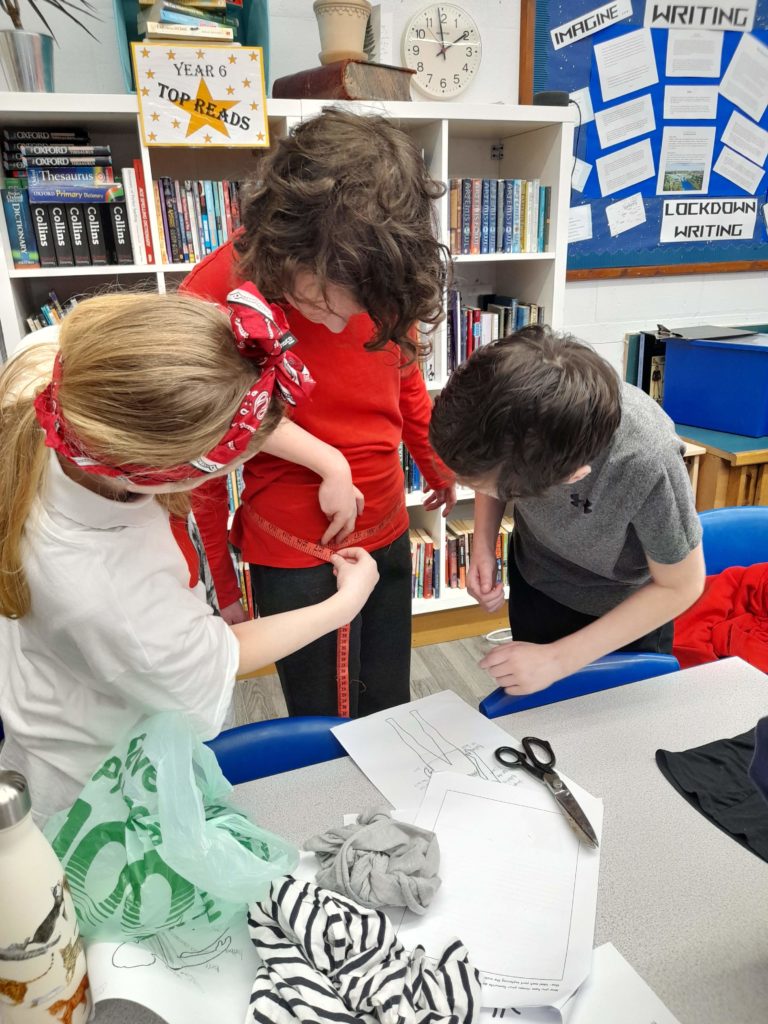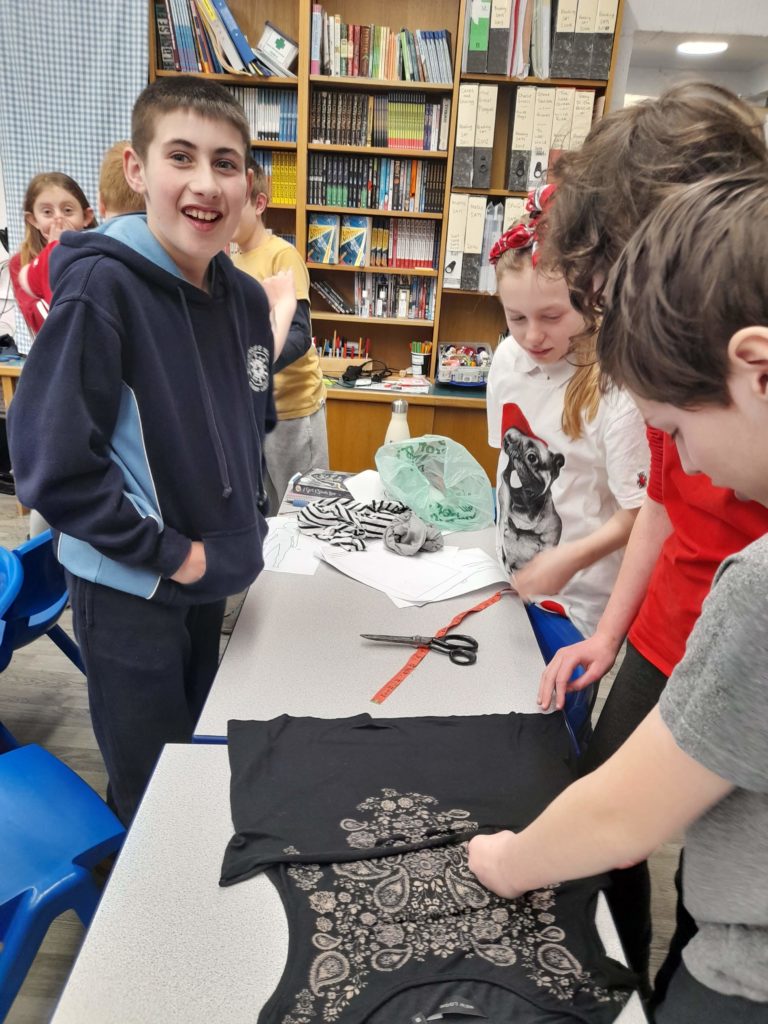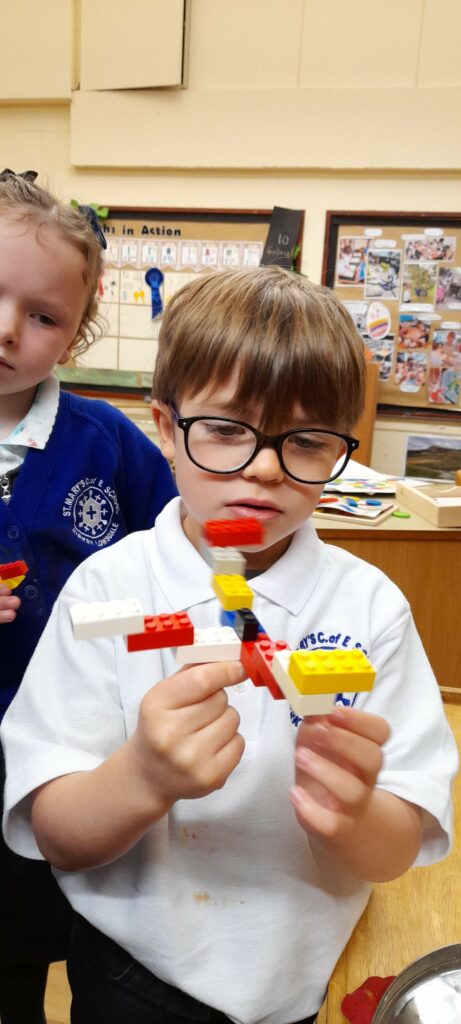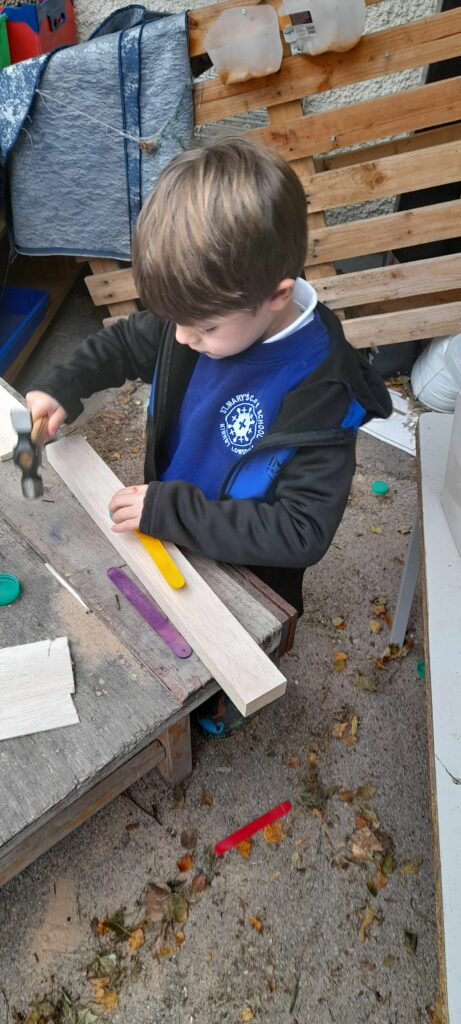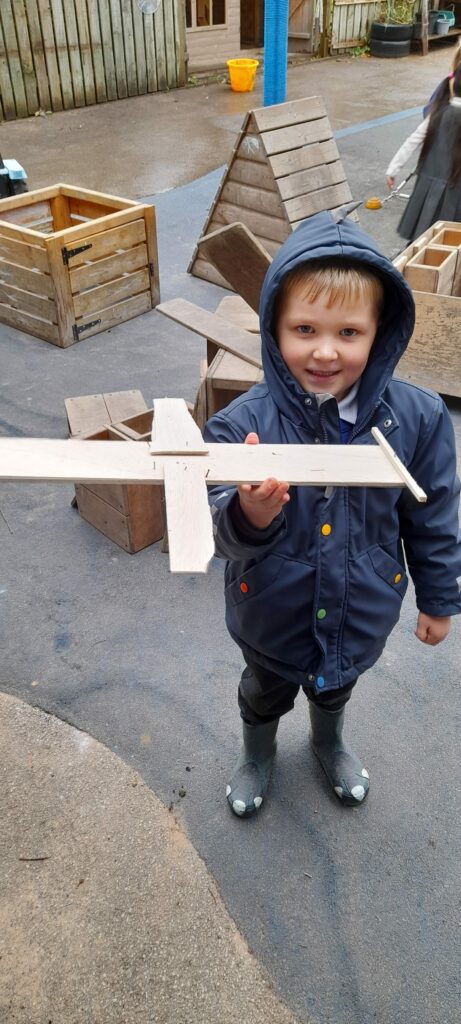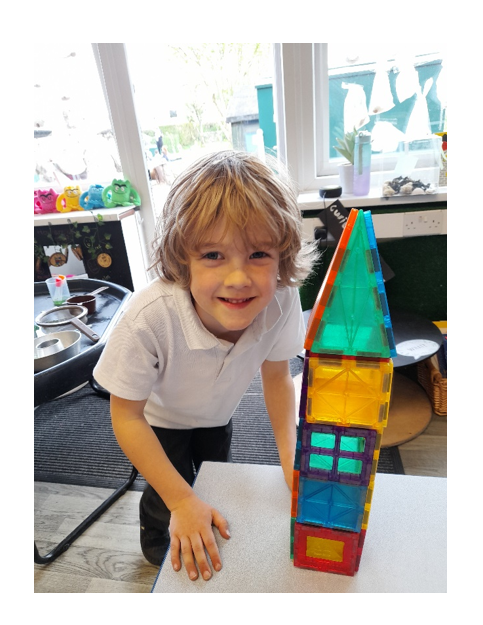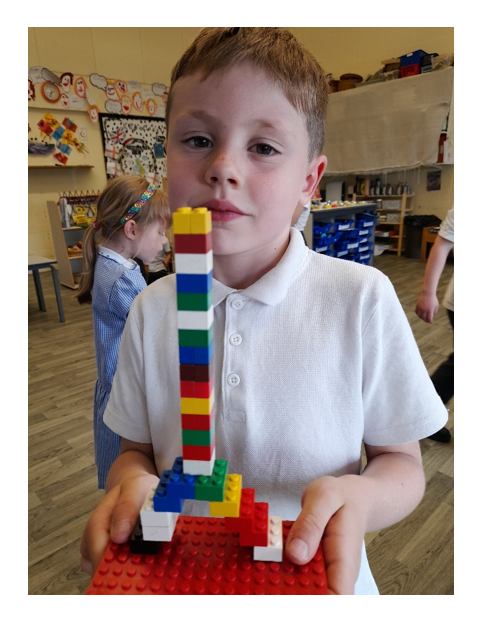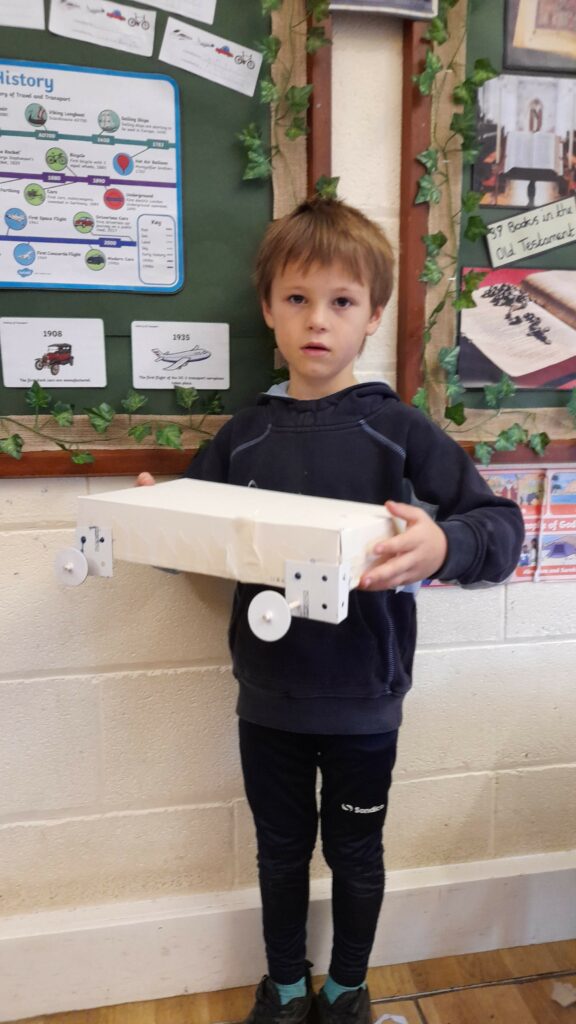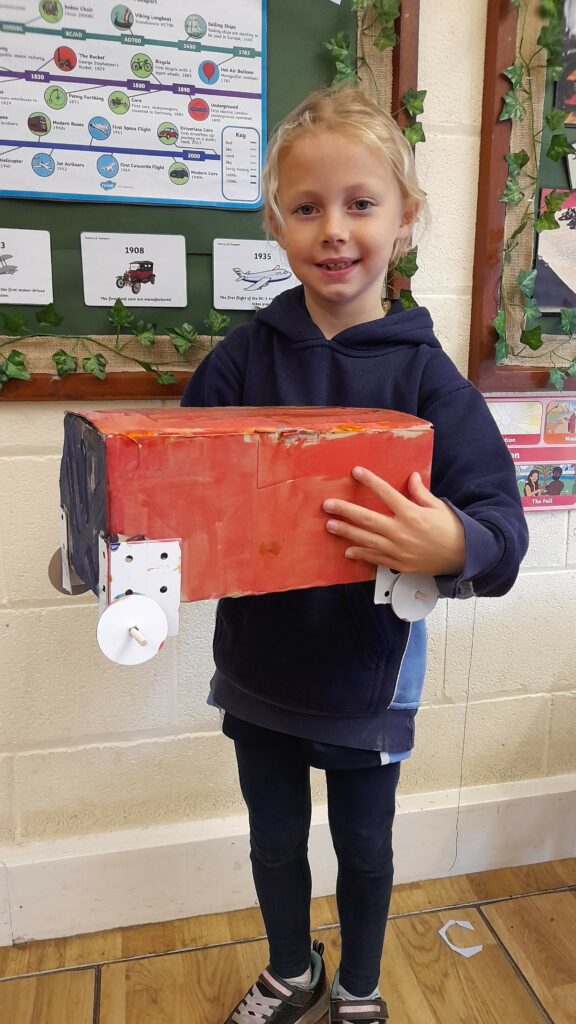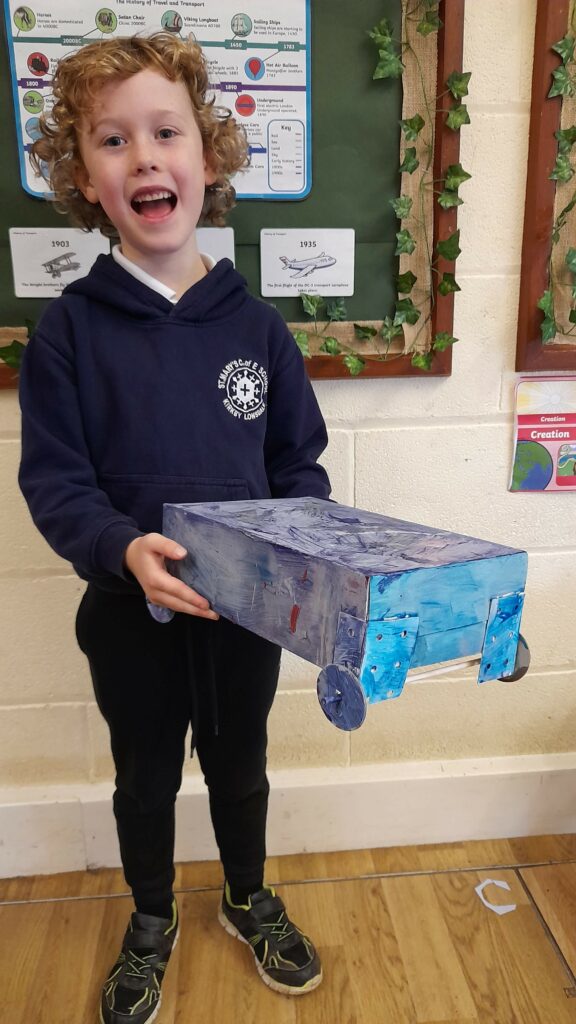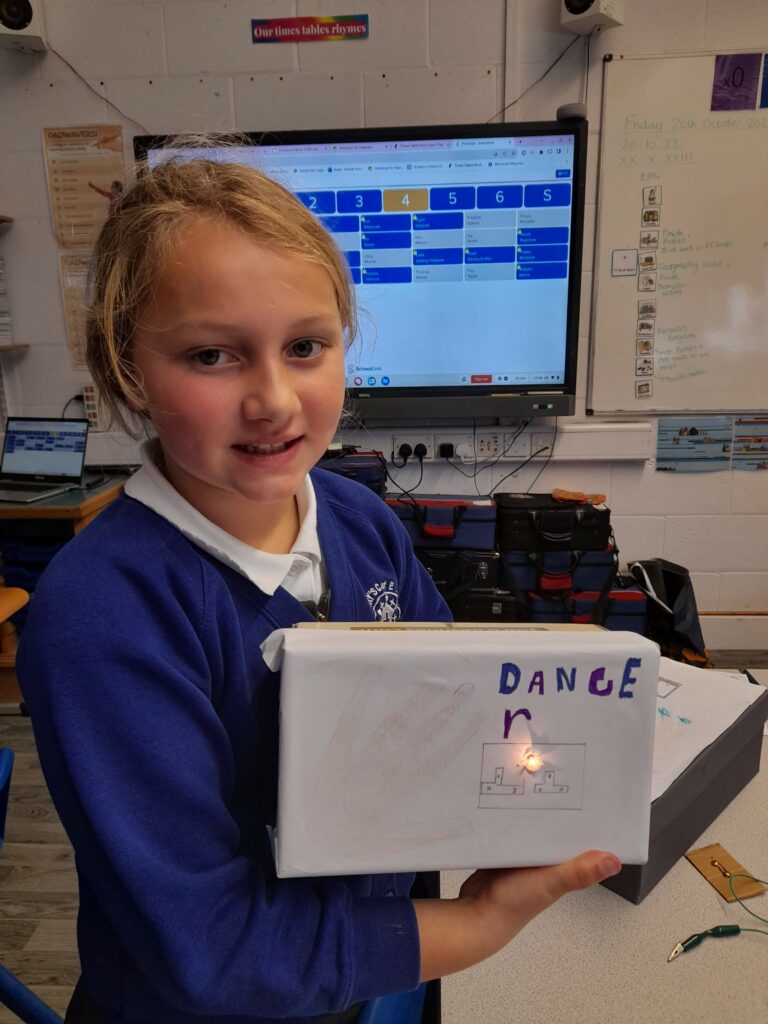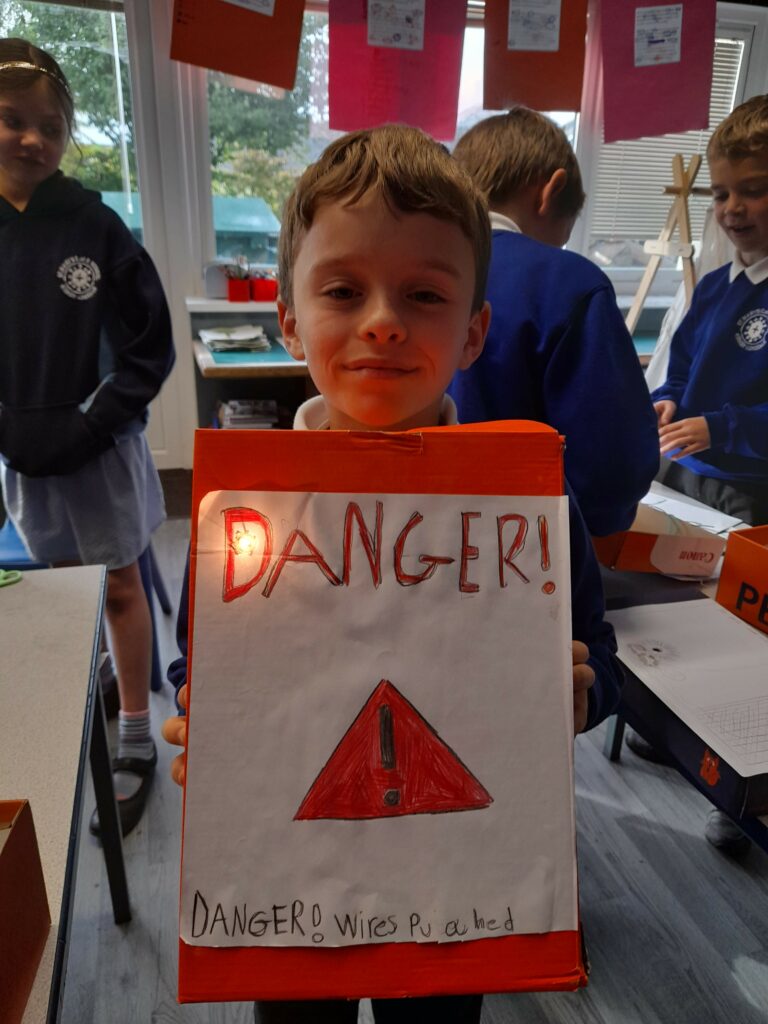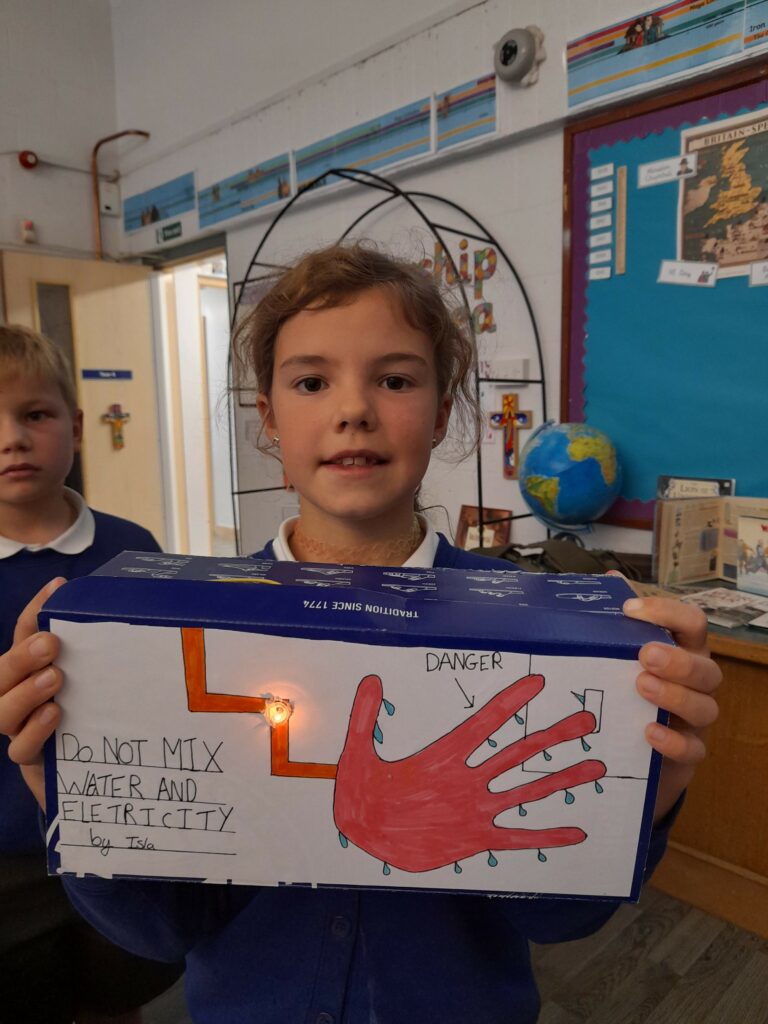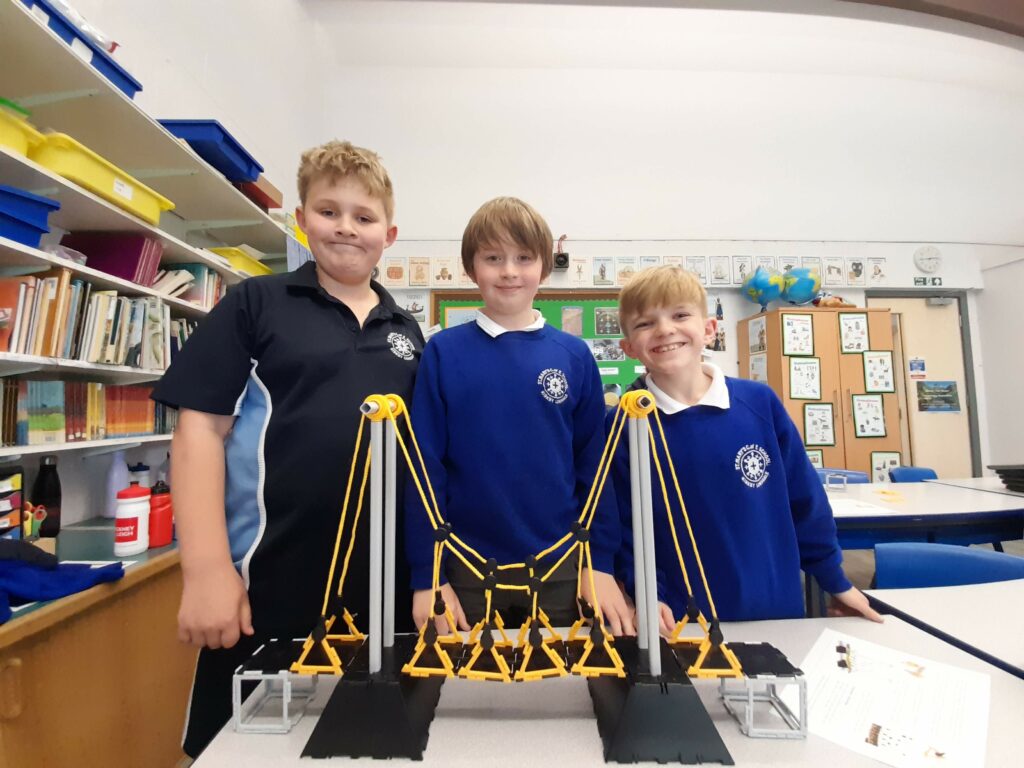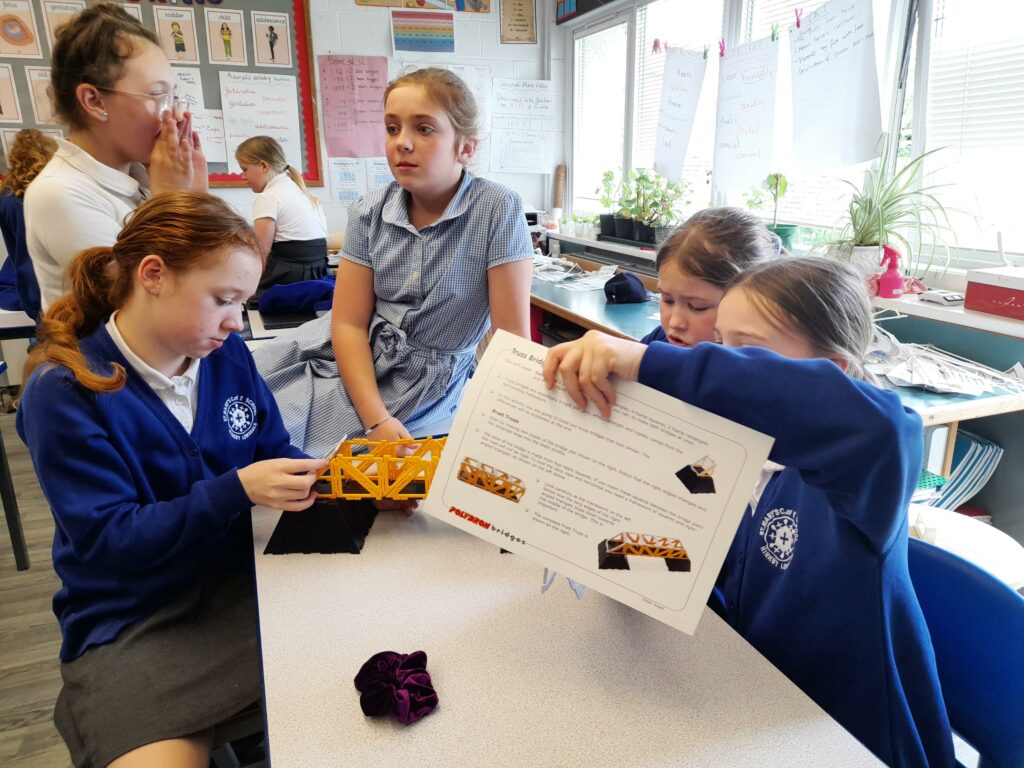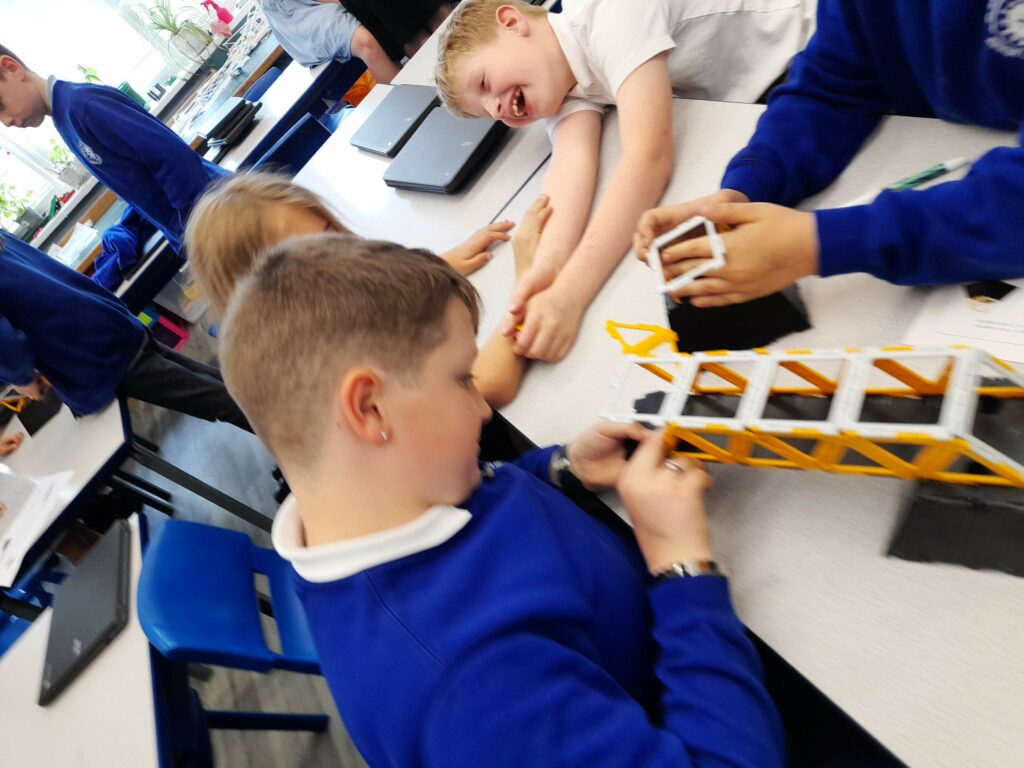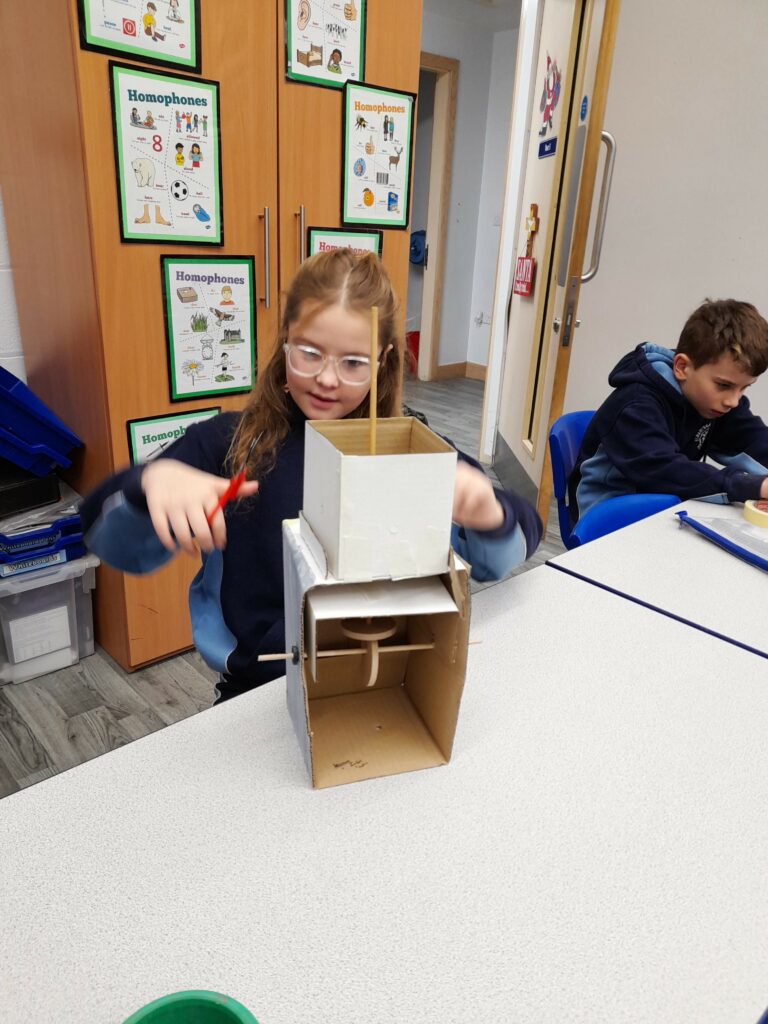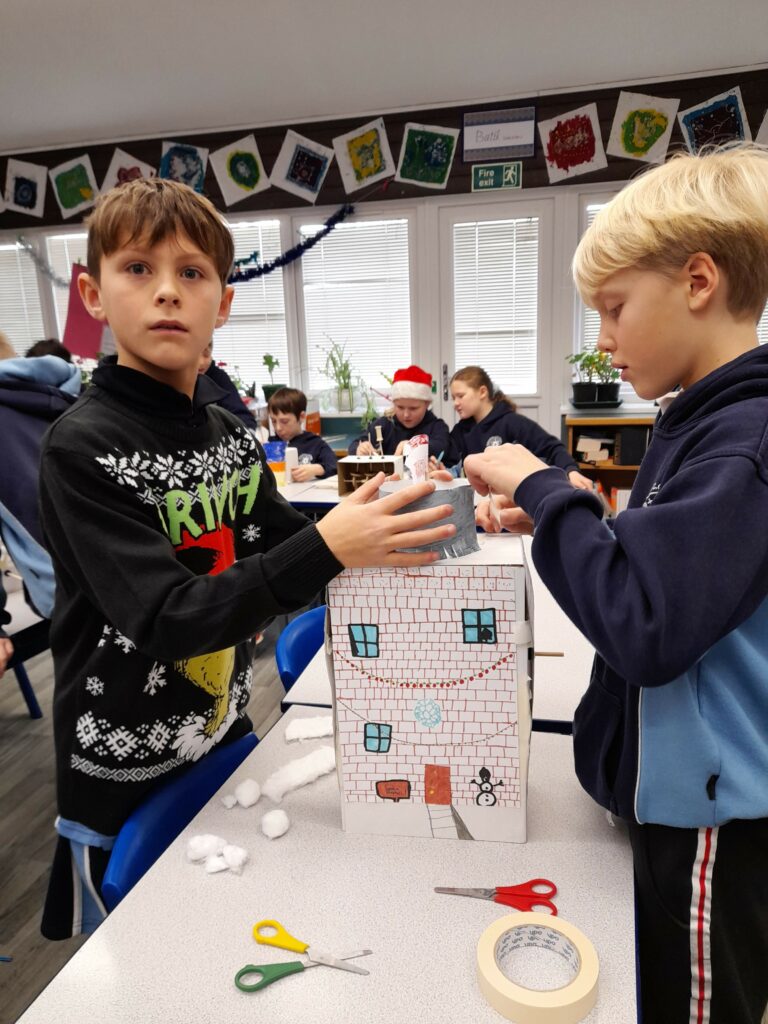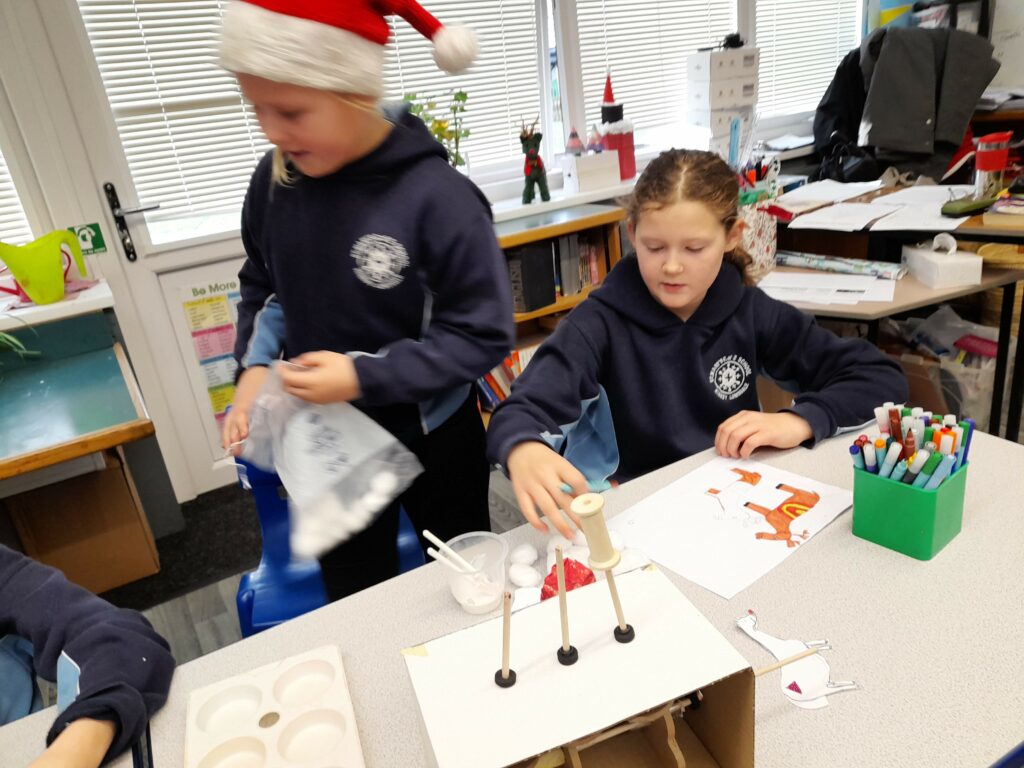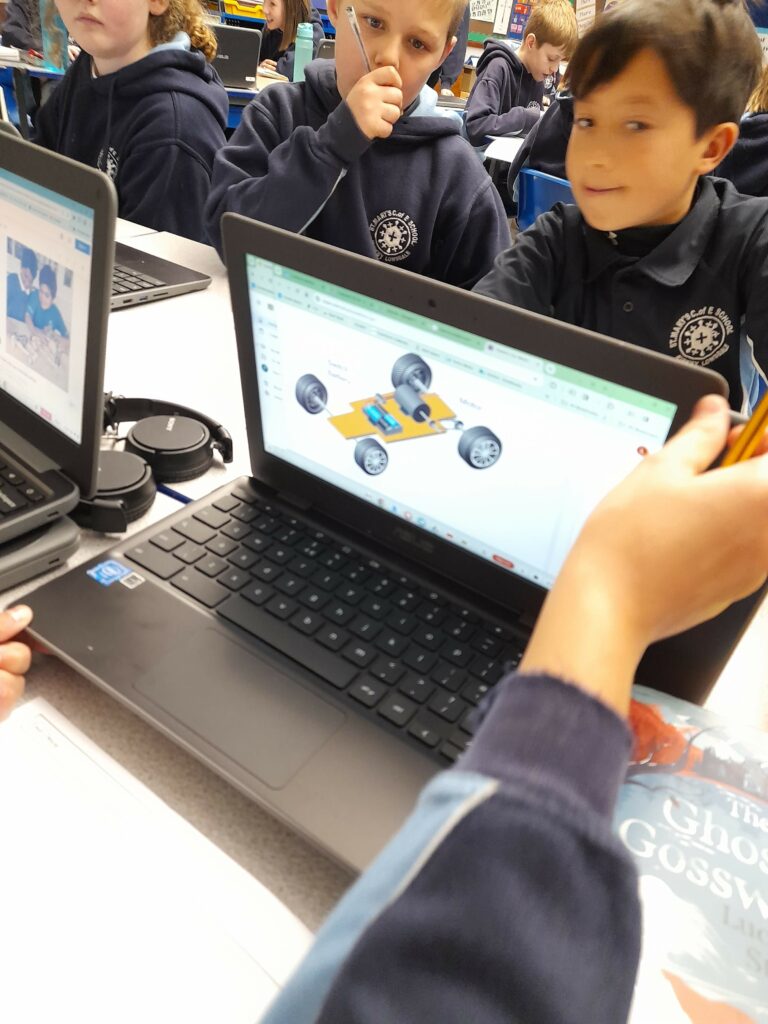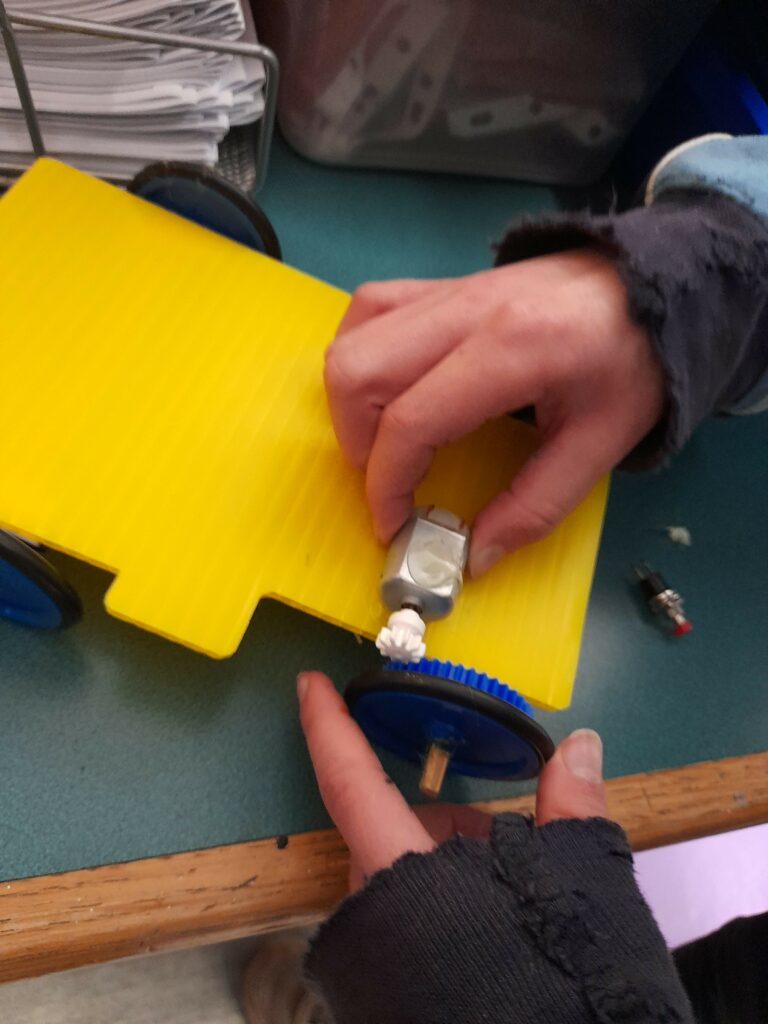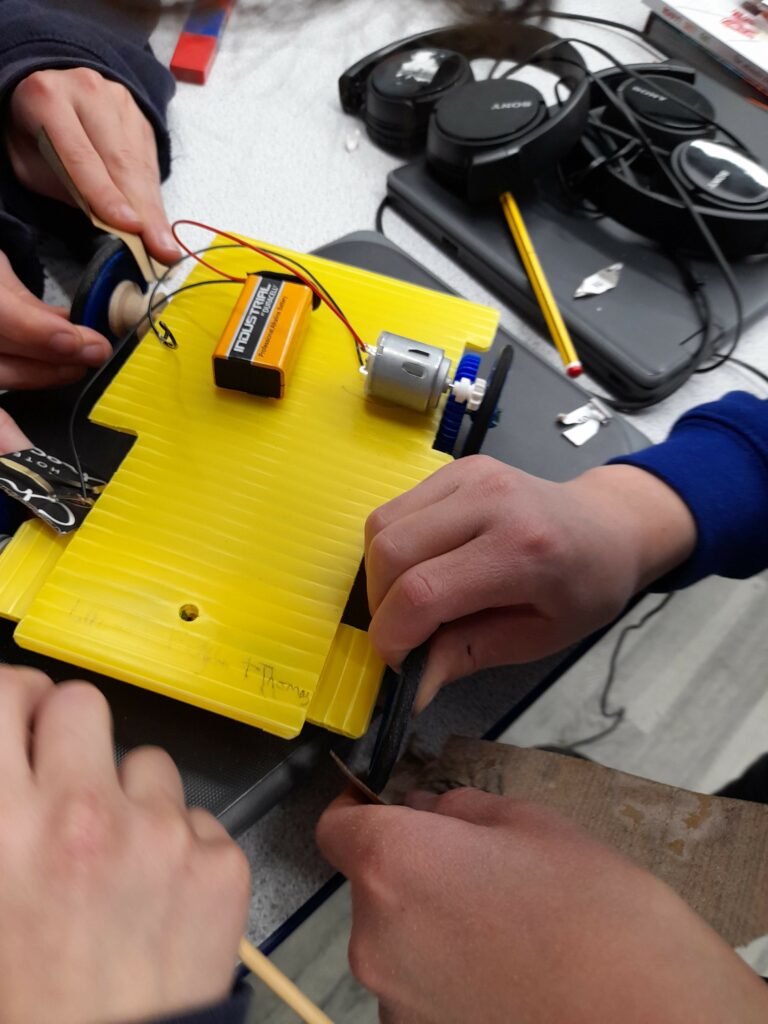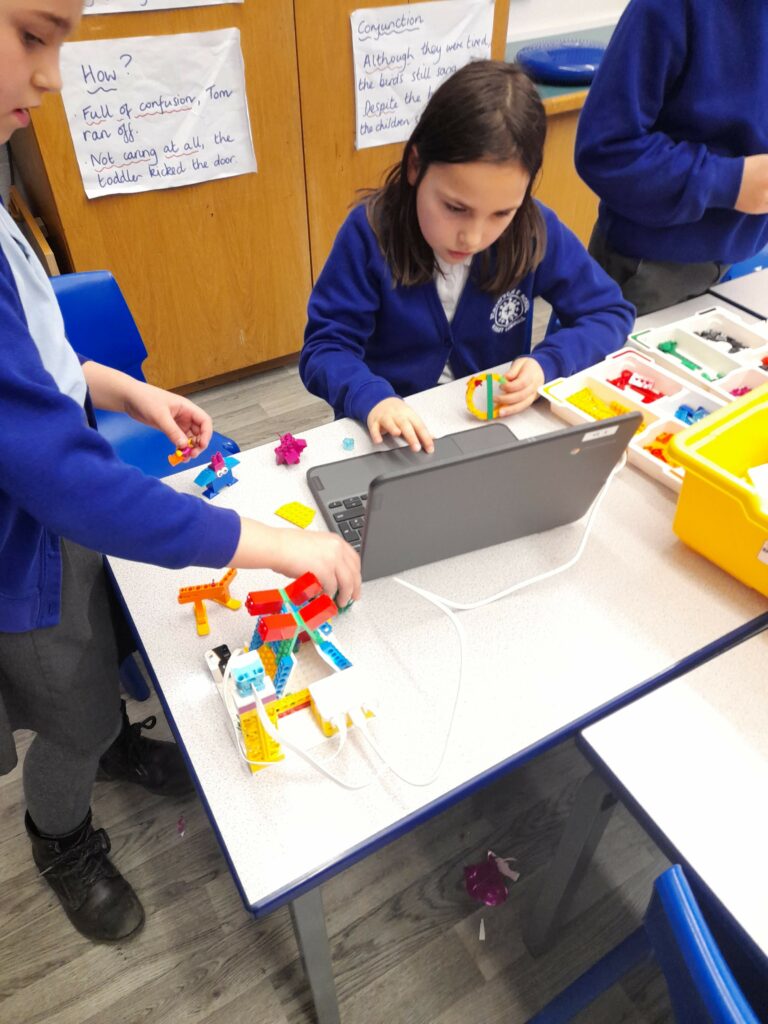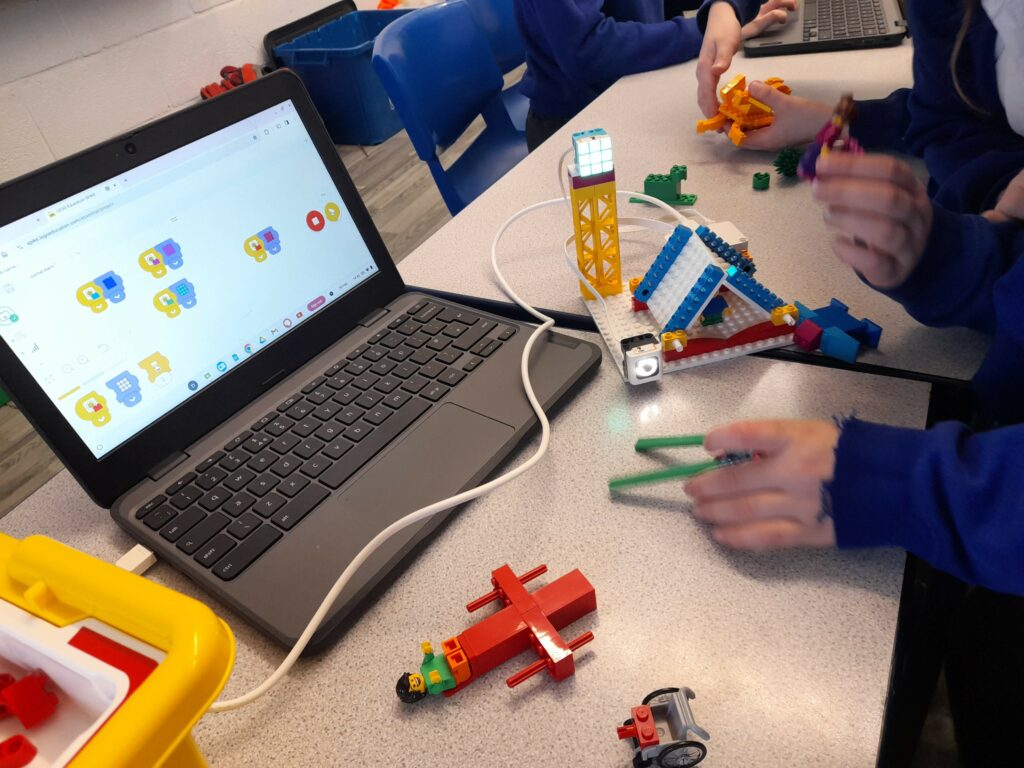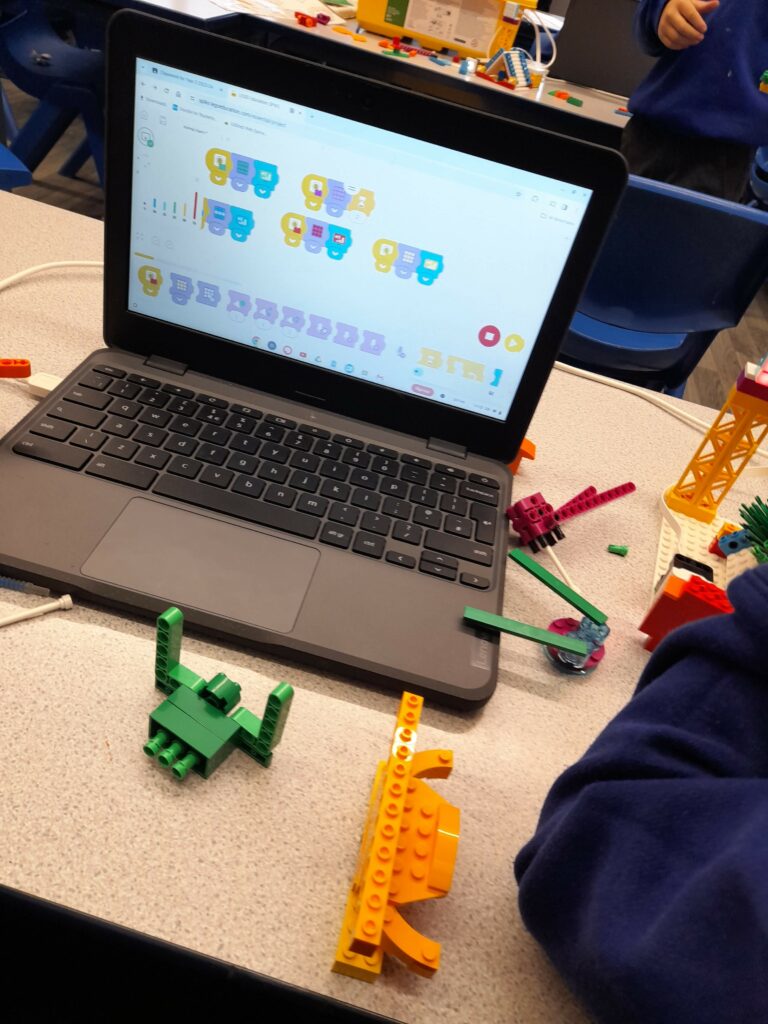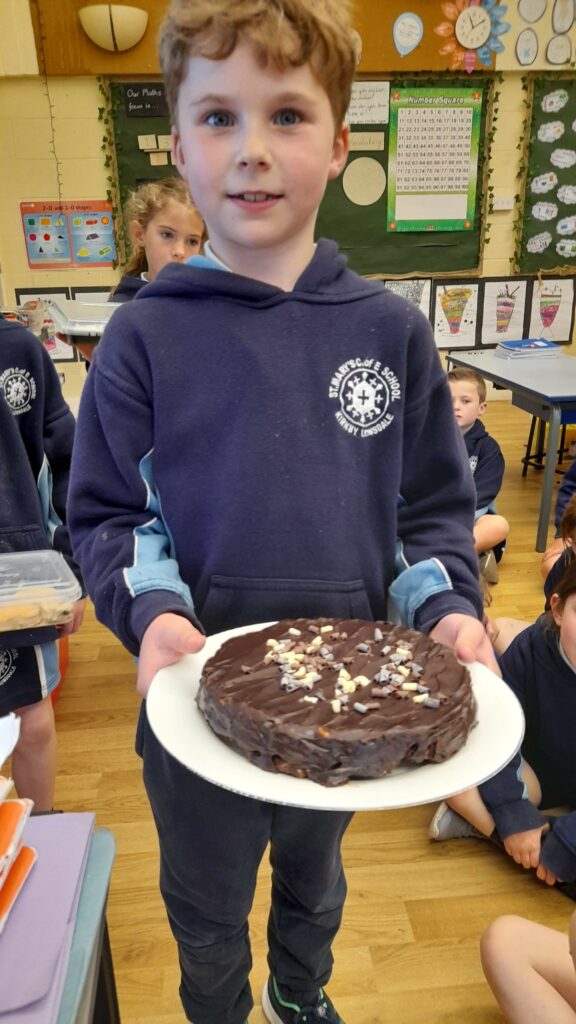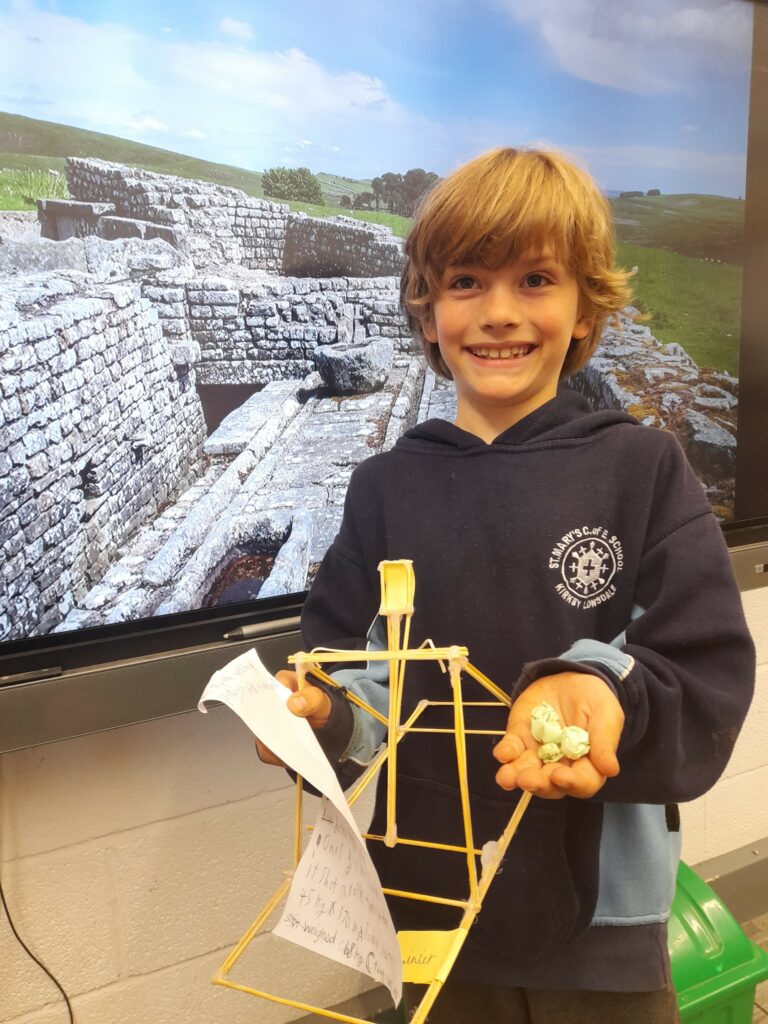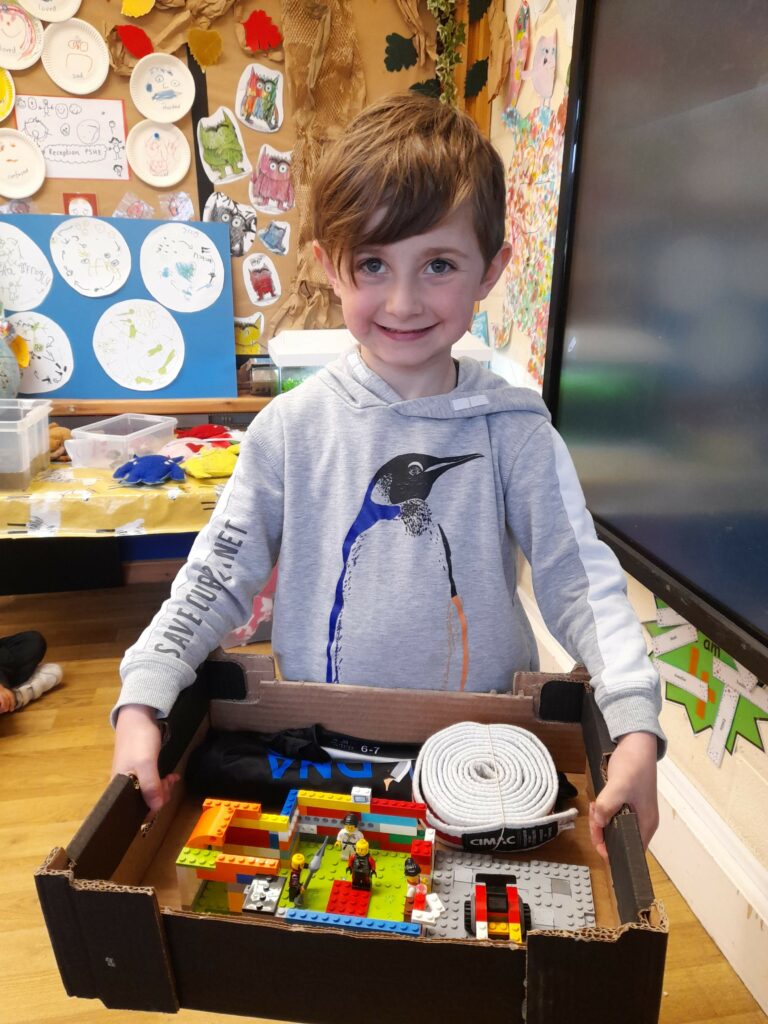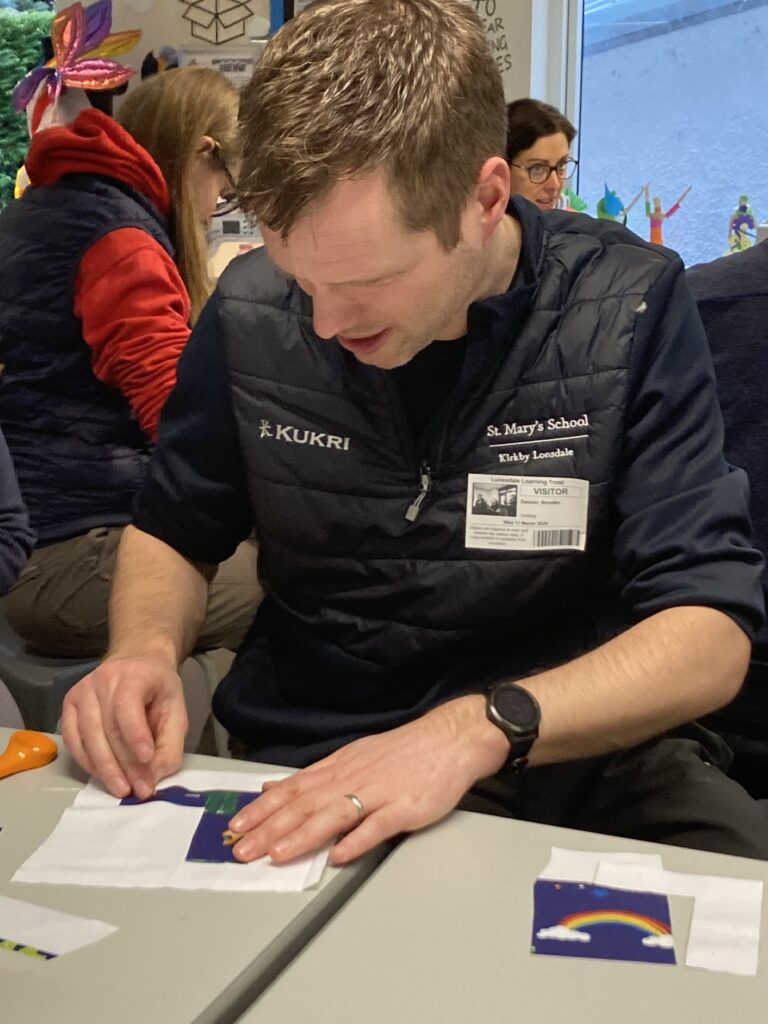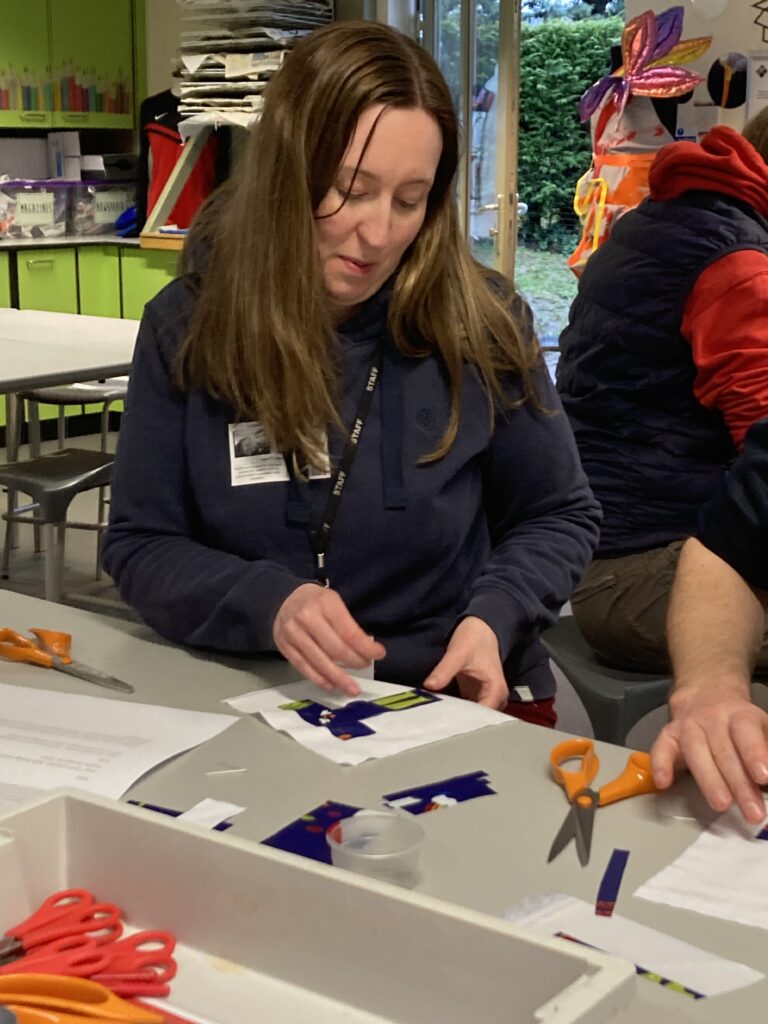Design and Technology is the most wonderful subject; it is creative and motivational. Problem solving underpins all elements in the subject and encourages our pupils to develop skills needed in the future. Children are encouraged to research; discuss initial ideas; plan in detail; make for a purpose and evaluate collaboratively.
We use a planning scheme called ‘Projects on a Page’ which gives school the development in skills and creativity required for this inspirational subject.
National Curriculum
Purpose of study
Design and technology is an inspiring, rigorous and practical subject. Using creativity and imagination, pupils design and make products that solve real and relevant problems within a variety of contexts, considering their own and others’ needs, wants and values. They acquire a broad range of subject knowledge and draw on disciplines such as mathematics, science, engineering, computing and art. Pupils learn how to take risks, becoming resourceful, innovative, enterprising and capable citizens. Through the evaluation of past and present design and technology, they develop a critical understanding of its impact on daily life and the wider world. High-quality design and technology education makes an essential contribution to the creativity, culture, wealth and well-being of the nation.
Aims
The national curriculum for design and technology aims to ensure that all pupils:
- develop the creative, technical and practical expertise needed to perform everyday tasks confidently and to participate successfully in an increasingly technological world.
- build and apply a repertoire of knowledge, understanding and skills in order to design and make high-quality prototypes and products for a wide range of users.
- critique, evaluate and test their ideas and products and the work of others.
- understand and apply the principles of nutrition and learn how to cook.
Subject content
Key stage 1:
When designing and making, pupils will be taught to:
Design
- design purposeful, functional, appealing products for themselves and other users based on design criteria.
- generate, develop, model and communicate their ideas through talking, drawing, templates, mock-ups and, where appropriate, information and communication technology.
Make
- select from and use a range of tools and equipment to perform practical tasks [for example, cutting, shaping, joining and finishing].
- select from and use a wide range of materials and components, including construction materials, textiles and ingredients, according to their characteristics.
Evaluate
- explore and evaluate a range of existing products.
- evaluate their ideas and products against design criteria.
Technical knowledge
- build structures, exploring how they can be made stronger, stiffer and more stable.
- explore and use mechanisms [for example, levers, sliders, wheels and axles], in their products.
Cooking and nutrition
- use the basic principles of a healthy and varied diet to prepare dishes.
- understand where food comes from.
Key stage 2:
When designing and making, pupils will be taught to:
Design
- use research and develop design criteria to inform the design of innovative, functional, appealing products that are fit for purpose, aimed at particular individuals or groups.
- generate, develop, model and communicate their ideas through discussion, annotated sketches, cross-sectional and exploded diagrams, prototypes, pattern pieces and computer-aided design.
Make
- select from and use a wider range of tools and equipment to perform practical tasks [for example, cutting, shaping, joining and finishing], accurately.
- select from and use a wider range of materials and components, including construction materials, textiles and ingredients, according to their functional properties and aesthetic qualities.
Evaluate
- investigate and analyse a range of existing products.
- evaluate their ideas and products against their own design criteria and consider the views of others to improve their work.
- understand how key events and individuals in design and technology have helped shape the world.
Technical knowledge
- apply their understanding of how to strengthen, stiffen and reinforce more complex structures.
- understand and use mechanical systems in their products [for example, gears, pulleys, cams, levers and linkages].
- understand and use electrical systems in their products [for example, series circuits incorporating switches, bulbs, buzzers and motors].
- apply their understanding of computing to program, monitor and control their products.
Cooking and nutrition
- understand and apply the principles of a healthy and varied diet
- prepare and cook a variety of predominantly savoury dishes using a range of cooking techniques.
- understand seasonality, and know where and how a variety of ingredients are grown, reared, caught and processed.
Cooking and Nutrition
Progression from EYFS to Year 6 is clearly mapped out. In EYFS pupils bake and prepare food throughout the year, developing their knowledge and skills. This progresses throughout school eg, designing smoothies, designing sandwiches and designing bread products.
Examples of Projects On A Page:
Textiles
Year 6 chose a decade from our past and designed and made an outfit to reflect their times. They went on to visit QES and used their sewing machines to fix materials together.
Building Structures
Year 1 have been building structures ranging from tables, bridges and towers. We identified some famous towers around the world and then used lego and wooden blocks to build the Eiffel Tower, Blackpool Tower and The Leaning Tower of Pisa.
Year 2 made fire engines when studying the Great Fire of London. They focused on adding wheels to a chassis.
Year 5 building on their skills to develop construction skills linking, complex structures and reinforcing.
Lego Spike – Education
Enrichment and Cultural Capital
Key Documents
What do our children think? (Pupil Voice)
Useful Websites:
Staff Training
Ensuring high quality subject knowledge is essential to ensure high standards of achievement. As part of our staff development we have made strong links with Queen Elizabeth School to ensure we understand curriculum progression to Key Stage 3 and beyond. We ensure good subject leadership through National Networks eg Mary Myatt Subject Leads Network.
Staff Development: Our eager staff visited Mrs Tillotson, the Textiles teacher at Queen Elizabeth’s School. By using their sewing machines and creating a collaborative banner for school, we saw how our sewing lessons would progress into Key Stage 3 and 4.
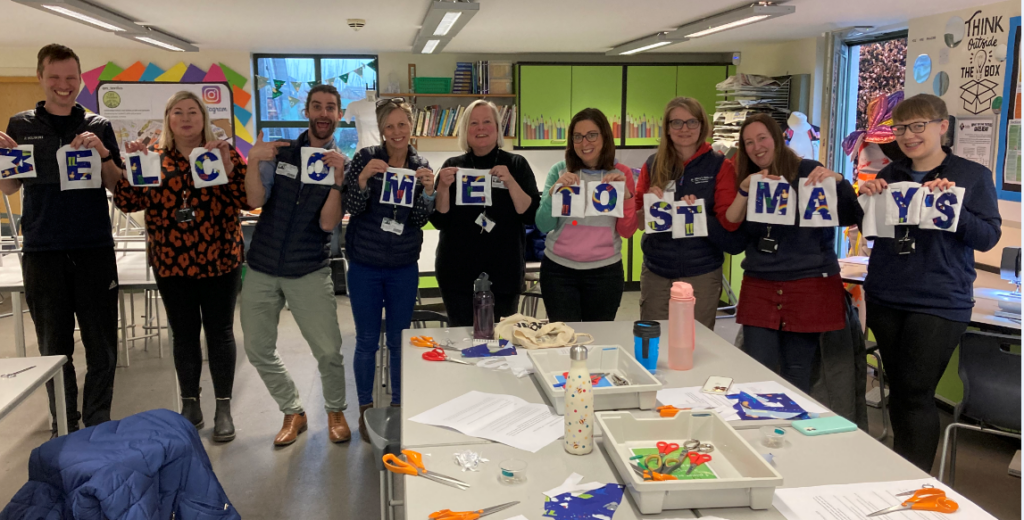

 015242 71334
015242 71334 admin@stmarys-kl.cumbria.sch.uk
admin@stmarys-kl.cumbria.sch.uk

